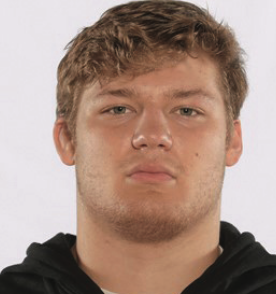
The underlying effects of brain trauma on college students
By Shaun Chornobroff
In the fall of 2019, her first semester as a college student, Bailey Adams was playing intramural flag football, a mostly non-contact sport she enjoyed playing with her new friends in college.
It was fun, carefree and harmless. Until it wasn’t.
In the middle of a seemingly average game, Adams was the victim of a brutal collision with a much bigger opponent, leaving the sophomore environmental science major with a brain injury she still copes with two-and-a-half years later.
“There are some kids that they’re out for a couple of days and they come back and they feel completely normal. But then there are other people like me, who is still feeling the effects years after,” Adams said.
A study using data from the health center of the University of Colorado Boulder in 2019 found that one in every 75 college students sustains a concussion during their time in college, and in all years, non-varsity-sport-related concussions outnumbered varsity sport-related concussions.
Brain injuries can have a traumatic effect on college students, especially in the digital age when classwork and assignments are done almost exclusively on a computer.
Rider’s Director of Student Accessibility and Support Services Barbara Blandford has guided plenty of students struggling with brain injuries and seen the stress that it brings.
“It’s because [students] know how they did before having a concussion, so it’s not a lost memory, especially if they were really good students,” Blandford said. “It’s much more difficult to be a good student because the time that one would need to put into studying, reading for example, whether it’s on a screen or a book, would be very difficult to maintain after a concussion.”
For Adams, the constant staring at computer and projector screens along with the mental stress of being a college student has been an uncontrolled detriment to her college experience.
Her sensitivity to screens caused her to take the 2020-2021 school year off. Even now that she is back in the classroom, Adams constantly has to take shortcuts she didn’t have to before as a result of her injury.
“There are days where it’s extremely difficult to just get by with my classwork because I’ll have classes where I’m spending three hours just solely on the computer, and then I have to go back to my room and do homework immediately after,” Adams said.
Unlike a sprained ankle or black eye, the effects of a concussion are invisible to the naked eye, and no one concussion is like another.
David Szuba is a freshman on Rider’s wrestling team. At 6 feet, 2 inches and 285 pounds, he wrestled his way to a state championship in high school before starting his career at Rider. While he had his share
of glory on the mat, he experienced one of his most heartbreaking losses off of it.
Jared Crippen was a teammate and good friend of Szuba’s at Brick Memorial High School. Szuba described Crippen in a recent email to The Rider News as, “this burst of positive energy all of the time. The only time I really saw him down was after losing close wrestling matches.”
In March 2019, Crippen sustained a concussion in a pre-season lacrosse game, and despite returning to action, Szuba said his friend was not his normal self.
“Off is really the only word I could use because it didn’t seem like much other than just a normal concussion,” Szuba said.
It was not a normal concussion. The mental stress had taken its toll and on April 23, 2019, five weeks after he first sustained the injury, Crippen shockingly took his own life.
“It didn’t feel real for the longest time. I personally didn’t believe it because nobody ever saw it coming,” Szuba said.
Having to cope with her concussion, Adams has joined support groups on Facebook with other people dealing with issues similar to hers. She’s had to skip countless events, struggled with anxiety, constant migraines and several other unseen challenges.
Despite this, she still finds herself having academic success, even achieving a 4.0 GPA in the fall semester, an accomplishment that holds more meaning than it did before her injury.
“It’s honestly just trying to make the best out of it. You know, I can’t change it, so I’m trying to learn from it” Adams said honestly. “I am more proud of how I had a 4.0 last semester. I’m more proud of that than I ever was at high school or before this happened, because I actually had to work for that.”
Rider’s Student Accessibility and Support Services can be reached at 609-895-5492 or by email at accessibility@rider.edu.
The Concussion Legacy Foundation has been supporting people affected by concussions since 2007. More information about the foundation can be found at concussionfoundation.org.


